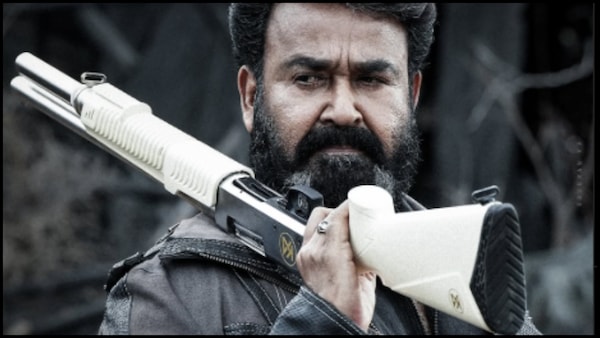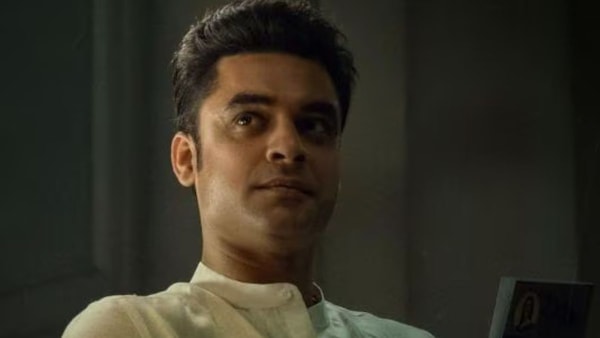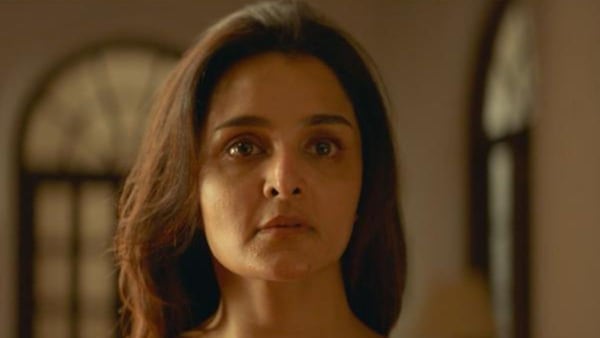The Empuraan Equation: Where Ambition and Execution Don’t Quite Add Up
What begins as a promising dive into power, politics, and myth-making eventually gives way to indulgence. Empuraan is a sequel that dares a lot, but delivers only in fits.

Mohanlal in Empuraan.
Last Updated: 02.42 PM, Apr 05, 2025
EMPURAAN, the highly anticipated sequel to Lucifer, has taken Malayalam cinema by storm, shattering box office records and cementing its place as one of the year's biggest releases. However, beneath its commercial success lies a complex and ambitious narrative that, while showing flashes of brilliance, ultimately falls short of its full potential.
Lucifer's closing shot offered a peek into Stephen Nedumpally’s (Mohanlal) shadowy realm. His pristine whites gave way to ominous black jacketed overalls and sleek designer shades. Even the landscape had transformed, unfolding like a canvas of the unknown, surrendering to the vast expanse of a distant topography. Again, this broadly hints at the enigma surrounding Stephen’s duality. It was a clever cliffhanger to usher in the sequel, amplifying the mystique surrounding the eponymous “Lucifer.” In Lucifer, writer Murali Gopy and director Prithviraj Sukumaran entwined a familiar good v/s evil narrative within the nuanced landscape of Kerala politics. The state is mourning the death of its CM, leaving the rival factions and family members to capitalise on the power vacuum. Soon, the entry of CM’s trusted aide and political kingpin, Stephen Nedumpally, sets the stage for a gripping narrative full of dramatic twists and turns.

But in its sequel, Empuraan, the writer-director duo expands its canvas, harbouring more ambitious goals. They venture into global provinces, tackling bigger and complex conflicts and pervasive political corruption in an attempt to elevate the narrative to a grander scale. And they also pick up from where they left in Lucifer, continuing to lay bare the degeneration of Indian politics and the cosy relationships between politicians, businessmen, and criminals, highlighting the systematic rot that threatens the nation’s very fabric. At least on paper, that is.
Since we are already privy to Stephen’s double life, his swashbuckling reappearance as Abram Khureshi, except in setting the stage for a dazzling intro for Mohanlal, never really heightens the mystery. In fact, the entire passage featuring Khureshi and his international crime syndicate comes across as overtly indulgent and shallow. The laundry list of international locations, though visually stunning, fails to leave a lasting impact or meaningfully expand Khureshi's operational scope. It also doesn’t help that Khureshi, despite being flanked by a battalion of sharpshooters and a fleet of helicopters, never quite exudes the same air of intimidation that Stephen Nedumpally, even without any of these shenanigans, effortlessly commands. Perhaps the most unintentionally “satirical” element lies in the narrative’s portrayal of Stephen/Khureshi as the 'Devil incarnate', when in reality, he's depicted as a saintly figure, speaking in a manner that's more akin to biblical fervour, rendering the dichotomy between his reputation and reality darkly comedic.

As the narrative oscillates between Kerala and Khureshi's global domain, it becomes increasingly disjointed and chaotic. Meanwhile, Jatin Ramdas (Tovino Thomas), the young scion who once seamlessly inherited his father's political legacy with Stephen's mentorship in Lucifer, has devolved into an erratic enfant terrible in Empuraan. But Jathin’s transformation lacks substantial backing, thereby reducing him to a mere plot device aimed at bringing Stephen back into the picture. As for Priyadarshini (a charismatic Manju Warrier), though she has some nice, potent moments on screen, her character suffers from repetition, as she once again relies on Stephen to rescue her from a precarious situation, mirroring the events from Lucifer. There is also a paradox in the portrayal of Khureshi, the ostensible underworld warlord, who is ironically reduced to a local thug in his bid to protect his people back in Kerala, thereby undermining his initially imposing persona. If Lucifer struck a balance between grounded action sequences and Mohanlal’s star power, Prithviraj is excessively indulgent in Empuraan. Take the eagerly anticipated jungle fight scene that reintroduces Stephen to Priyadarshini—while acknowledging the massy staging, it is not just predictable but also needlessly stretched, thereby thinning the initial hysteria.

Also, all the characters etched impactfully in Lucifer are relegated to secondary status in the sequel, thus ending up as leftovers. The staging, too, comes across as forced and overly choreographed, stripping even the occasional high-octane moments of their impact, leaving them feeling hollow.
Even the witty one-liners cleverly woven throughout Lucifer are conspicuously missing in its sequel, leaving a noticeable void in the film’s dialogue. If the writer was soft peddling the Congress party and bashing the rivals in the first part, in Empuraan, he takes a more apolitical approach. Though Congress is still handled with kid gloves, the makers still touch on the contentious issue of nepotism in politics. But even here, the writer dilly-dallies, ultimately relying on nepotism as a plot device to drive the story forward.
If the communist party is caustically dismissed by a Congress leader in Empuraan, the film takes a firmer stand against right-wing/Hindutva ideology. While one acknowledges the filmmaker's unrestrained depiction of the Gujarat riots in this climate of political intolerance, it was somewhat undercut by its use as a plot device to explore the backstory of a relatively secondary character (Syed Masood), thereby weakening its overall impact and resonance.
But the “religious” balance cannot be faulted. On one hand, a compassionate Hindu matriarch provides refuge to displaced Muslim families, highlighting the kindness and empathy within the community. On the other hand, the film also depicts a group of Hindutva extremists vandalising Muslims, exposing the ugly face of intolerance. Furthermore, the story also touches on the possibility of the sole surviving member of the Muslim family becoming susceptible to radicalisation by extremist Muslim groups.

Conversely, the narrative fails to provide a convincing explanation for Khureshi's unusually strong bond with Syed (Prithviraj Sukumaran) or why he's so invested in helping Syed avenge his family's mass murder. Given that Syed was just one of many young men rescued by Khureshi, it's unclear why their relationship is uniquely significant. By that logic, shouldn’t Khureshi share a similar emotional connection with his other bodyguards, who were also saved by him, then?
The absence of a formidable adversary to Stephen/Khureshi is another sore point. Instead, we have a caricaturish Bollywood stereotype of a one-dimensional villain in Bajrangi. Also, one felt it would have been more compelling if the narrative had focused on the dynamics between Stephen and the Ramdas siblings, which remains the core of Empuraan/Lucifer.
Whenever Mohanlal slips into a mundu, black shirt as Stephen, he becomes a force of nature, as he did in Lucifer. But in sharp contrast, Khureshi Abrahm, aka Empuran (translated as more than a king, less than a God), is a mere shadow of the projected larger-than-life persona. In his quest to elevate his leading man (and occasionally himself), Prithviraj often overlooks the attention to detail. For instance, it is perplexing that Khureshi converses with Syed, a Gujarati Muslim, in profound Malayalam. And that absurdly staged finale fight to annihilate the villain is not only stretched to inordinate limits, but also dents Khureshi’s aura and the character’s impact. Even if Empuraan is shattering several existing box office records in Malayalam cinema, its ambition and promise are left unfulfilled, making it a missed opportunity to deliver a truly impactful cinematic experience.

 Premium
Premium